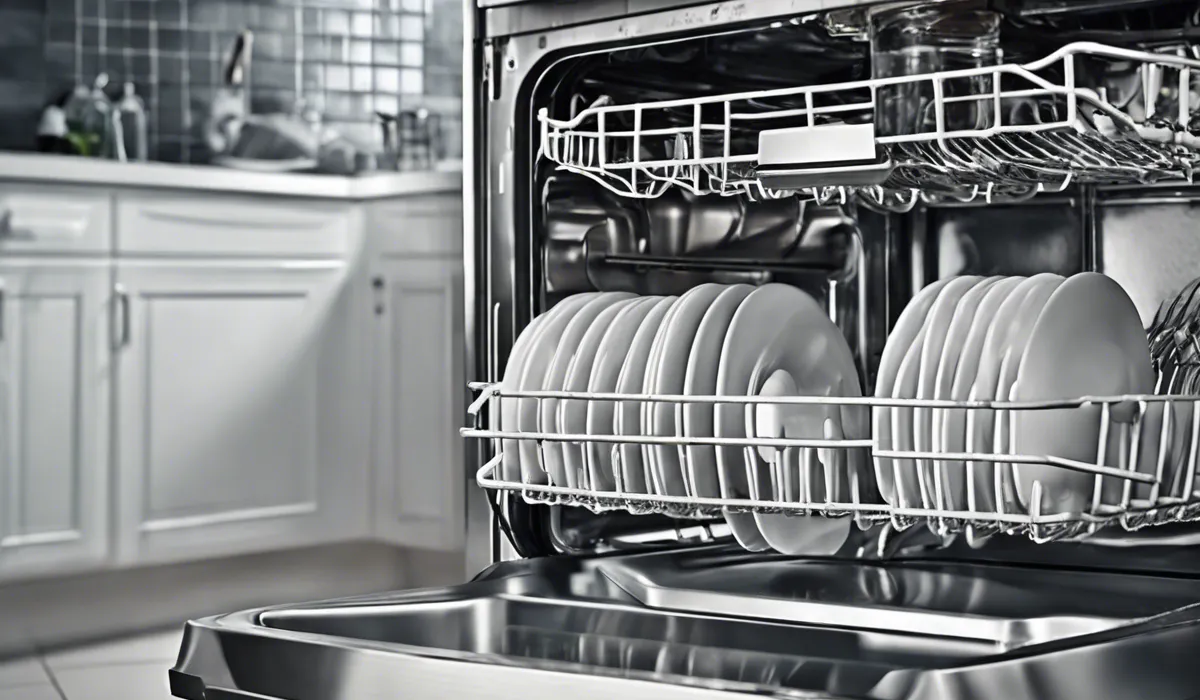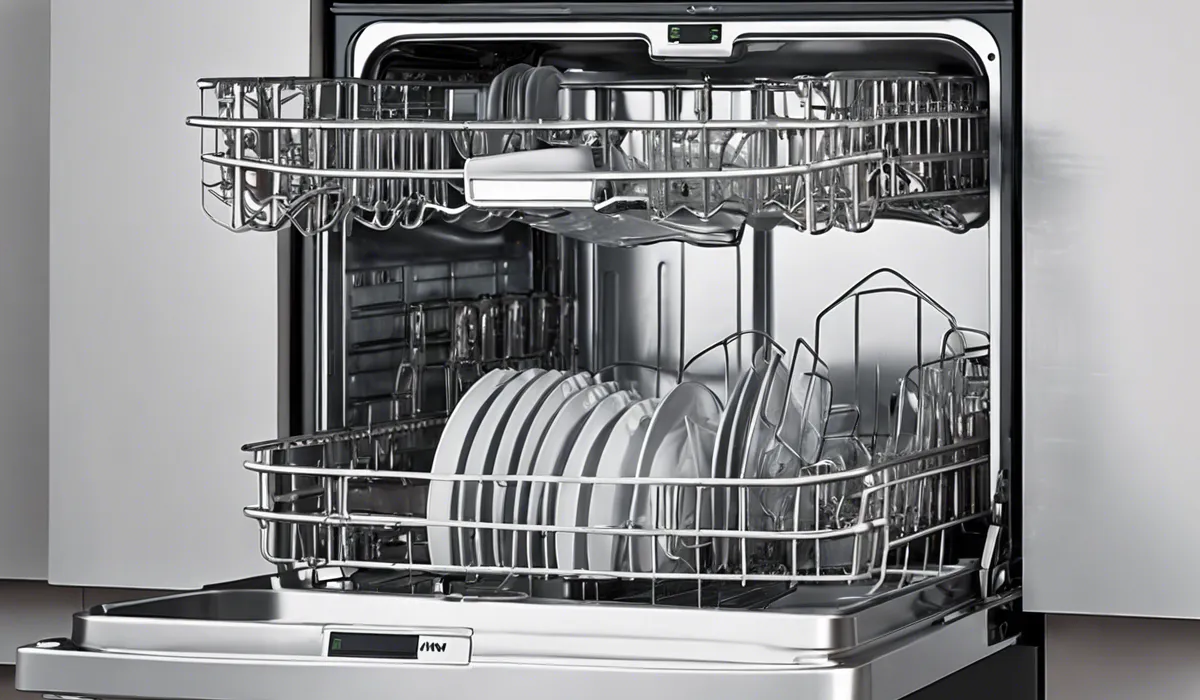How Much Water Does the Dishwasher Use? Surprising Facts!
On average, a dishwasher uses about 3-6 gallons (11-23 liters) of water per cycle. Energy-efficient models can use as little as 3 gallons, whereas older models may use up to 10 gallons (38 liters).
Dishwasher Water Usage: Factors and Averages

Average Water Consumption Per Cycle
Modern dishwashers have made impressive strides in efficiency, with the latest models using an average of 3 to 6 gallons (11 to 23 liters) of water per cycle.
This is a significant improvement compared to older machines, which could consume much more.
With the rise of energy-efficient appliances, choosing a dishwasher that has an Energy Star label can ensure that you are getting a machine that uses water and electricity as efficiently as possible.
Variation Based on Models and Age
The water usage of dishwashers can vary widely depending on the model and its age. While newer models are designed to be more water-conscious, older dishwashers may use up to 10 gallons (38 liters) per cycle.
This variation is often due to advances in technology and increased environmental awareness, which have led manufacturers to develop dishwashers that need less water to get the job done effectively.
Impact of Cycle Types and Settings
Different cycle types and settings on your dishwasher can also impact water usage.
For example, a ‘heavy’ cycle will use more water than a ‘light’ or ‘eco’ cycle because it is designed to tackle tougher, baked-on foods.
Settings like ‘sanitize’ may also increase water usage, as they require additional rinsing or higher water temperatures.
Understanding how these settings affect water consumption can help you make smarter choices about which cycle to use.
Comparing Dishwasher Water Use to Hand Washing

Estimated Water Usage for Hand Washing
Hand washing dishes can use significantly more water than dishwashers, especially if the water is left running.
Estimates suggest that hand washing uses about 27 gallons (102 liters) of water compared to a dishwasher’s 3 to 6 gallons. This stark difference showcases the efficiency of modern dishwashers when it comes to water usage.
Efficiency Comparison Between Methods
When comparing the efficiency of dishwashers to hand washing, it’s clear that dishwashers come out on top.
They not only use less water but are also better at saving time and ensuring dishes are cleaned more thoroughly.
The machines are designed to maximize the cleaning power of water with mechanical action and high temperatures, which hand washing often cannot match.
Environmental and Cost Implications
The environmental and cost implications of using a dishwasher versus hand washing are significant.
Using less water means that dishwashers are more environmentally friendly, as they conserve this precious resource.
Additionally, using less water also means lower utility bills, providing cost savings over time. This makes the use of a dishwasher a smart choice both for the planet and your wallet.
Optimizing Dishwasher Water Efficiency

Tips for Reducing Water Usage
There are several tips you can follow to reduce the water usage of your dishwasher. Running full loads instead of multiple partial loads can save water.
You can also choose shorter, more efficient cycles for lightly soiled dishes, and skip the pre-rinse by scraping off food scraps before loading the dishwasher. These simple steps can lead to significant water savings over time.
Recommended Features for Conservation
When shopping for a new dishwasher, look for features that help conserve water.
Dishwashers with soil sensors adjust the water usage based on how dirty your dishes are, while those with efficient jets and innovative rack designs maximize cleaning power without needing more water.
A delay start feature can also be useful to run the dishwasher during off-peak hours, potentially reducing energy costs.
Maintenance and Loading Techniques
Proper maintenance and loading techniques can also contribute to the efficiency of your dishwasher.
Regularly cleaning the filter and ensuring that the spray arms are not blocked can prevent the need for repeat cycles, thus saving water.
Loading dishes according to the manufacturer’s recommendations can ensure that each load is cleaned effectively the first time, avoiding the wastefulness of running the dishwasher again for a few items that didn’t get clean.
FAQs About Dishwasher Water Usage
How much water does an average dishwasher use per cycle?
On average, a dishwasher uses about 3-6 gallons (11-23 liters) of water per cycle.
Do energy-efficient dishwashers use less water?
Yes, energy-efficient dishwasher models can use as little as 3 gallons of water per cycle.
How much water do older dishwasher models consume?
Older dishwasher models may use up to 10 gallons (38 liters) of water per cycle.
Is there a significant water usage difference between new and old dishwashers?
Yes, newer dishwashers are generally more water-efficient, using significantly less water than older models.
Can I reduce water usage with my current dishwasher?
Yes, you can reduce water usage by ensuring it’s fully loaded before running a cycle and choosing the eco-friendly setting if available.
Final Thoughts
Dishwashers typically consume 3-6 gallons of water per cycle, with energy-efficient models on the lower end of this range.
Meanwhile, older dishwashers may have a higher water usage, reaching up to 10 gallons. Selecting a modern, efficient dishwasher can significantly reduce water consumption.





